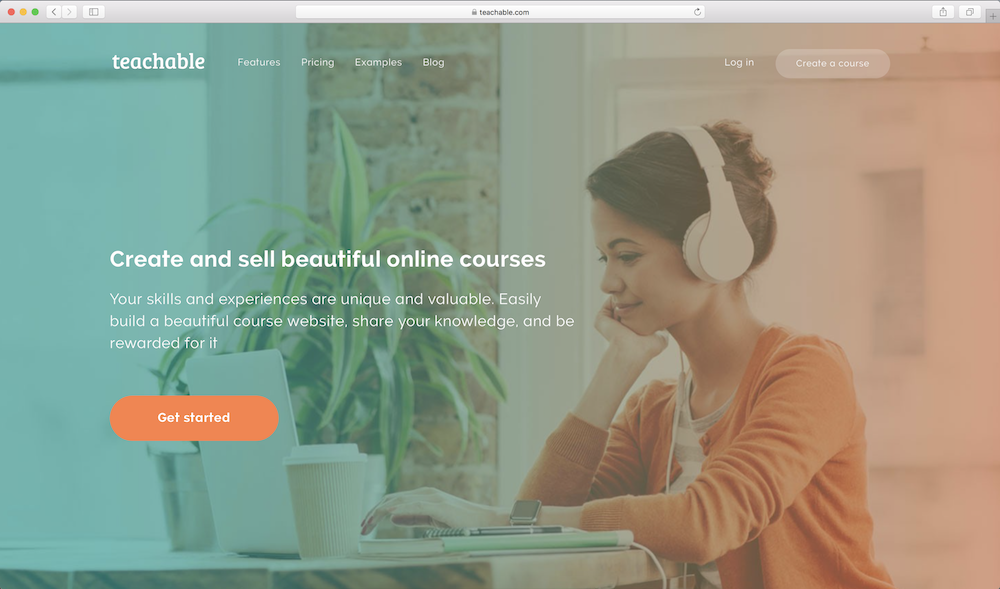The Internet has changed the way in which we learn in numerous ways. E-learning is estimated to be an industry that exceeds $100B with no slowdown in sight. Looking to decentralize education, Teachable allows anyone to create, distribute, and monetize online courses through its course creation and distribution platform. Presently, over 22,000 instructors are using the as the company looks to address the void found in other online course portals, where instructors are not able to control their own brand and pricing.
AlleyWatch sat down with Teachable CEO and founder Ankur Nagpal to learn more about the company, its origin, its unique proposition, future plans, and the company’s latest round of funding, which brings it total funding raised to $12.5M since its founding in 2013.
Who were your investors and how much did you raise?
We raised $4 million largely from existing investors Accomplice Ventures and AngelList founder Naval Ravikant. We also took on several new investors in this round, including Shopify founder Tobias Lutke, Weebly founder Chris Fanini, Lynda.com CEO Eric Robinson, and Getty Images founder Jonathan Klein.
Tell us about your product or service.
Teachable is a SaaS ed-tech platform that lets anyone affordably create and sell online courses. We’re used by small businesses and entrepreneurs all over the world, as well as a growing group of larger business and institutions like the New York Times and the University of Pennsylvania.
 What inspired you to start the company?
What inspired you to start the company?
After I moved to New York, I taught a few marketing courses at General Assembly. I enjoyed doing that and wanted to take it online – so I put the course on a marketplace style site called Udemy. The experience I had there was negative enough that I realized there must be others who wanted to teach online, but control their own branding and audience.
How is it different?
Unlike marketplace style sites like Coursera and Udemy, our instructors run their own sites and control their own branding, pricing, and marketing. This means they own their brand and their audience, which is a huge draw, both for our consumer as well as Enterprise clients (companies like the NY Times).
What market you are targeting and how big is it?
We see a lot of room for growth in our market. Right now, our target audience is people who are interested in selling courses online – a multi-billion dollar market. However, we see tremendous room for expansion. We want to be the place for people to go to sell their knowledge – in whatever form that takes.
What’s your business model?
We charge a monthly fee to use our services, and depending on the client’s plan level, we also take a small cut of sales. It’s similar to Shopify’s.
What kind of metrics can you share on how many people have sold courses and how many students have received training through the platform?
We’ve seen 100k+ instructors sign up – with thousands of them making sales every day. We’re seeing 15,000 people (and growing!) signing up to take courses every day, which is still incredible.
What was the funding process like?
It’s been great working with existing investors for this round of funding – everyone knows the business and is excited about what comes next. At the same time, one of our goals with this round was to bring in key individuals who could help us with their specific expertise and introductions, like Chris from Weebly.
What are the biggest challenges that you faced while raising capital?
We had the fortunate problem of being oversubscribed for this round – and it’s never easy to turn down potential investors.
What factors about your business led your investors to write the check?
I think our investors believe in our vision for the product – that this is a real opportunity not just for people who sell online courses, but for people who sell information of any kind. Authors, coaches, consultants, and speakers – our investors recognize that this could be the platform for all of them.
What are the milestones you plan to achieve in the next six months?
In the next six months, we’re looking to launch some major new features that will make it easier for people who don’t make courses to generate revenue on our platform. We’re really excited about the possibilities here.
What advice can you offer companies in New York that do not have a fresh injection of capital in the bank?
Look into customer acquisition models that don’t require as much direct investment. Our affiliate program has been very successful and costs very little to run.
Where do you see the company going now over the near term?
Over the near term, we’re looking to make Teachable an even better option for people who want to teach online.
What’s your favorite restaurant in the city?
I moved to Brooklyn last year and am always finding new places. A current favorite is Birds of a Feather in Williamsburg.




